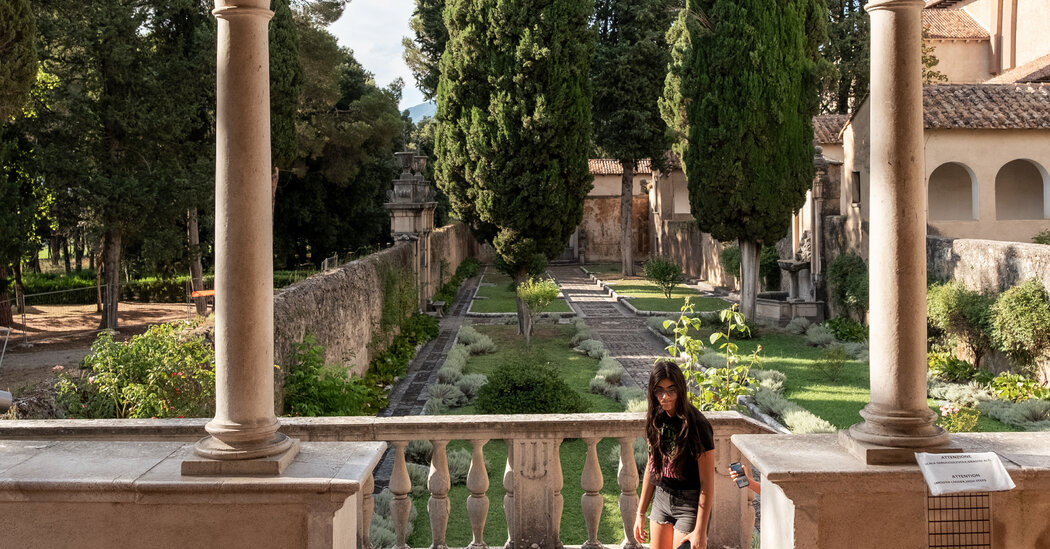From a piazza in the town of Castellabate on the Cilento coast of Italy, you may lift your eyes over the rim of your cappuccino and drink in a panorama of sky and Mediterranean Sea from Salerno to the Gulf of Policastro. Looking way, way down, a fruited plain of vineyards, lemon trees and white fig stretches to the flanks of green mountains decked with wisps of vapor.
Standing at the same point in 1811, Napoleon’s brother in law, appointed King of Naples in the early 19th century, uttered words that the town has engraved on its town hall: “Qui no si muore.” Roughly, Here you do not die.
Of course, people do die in the Cilento, a region south of the Amalfi Coast. But they also live longer than most, thanks to the Mediterranean Diet, first studied in these parts. It is more accurate to say that here, eternal life is a more appealing proposition.
Last spring, I decided to explore Italy’s second largest national park, the Cilento, Vallo di Diano and Alburni National Park, which encompasses both sea and mountains, and its environs, on foot. I made the town of Acciaroli my home base, from an Airbnb with a bedroom window that opened on the port. My goal was to “staccare la spina,” or unplug, in Italian. It was early May, no summer crowds. At dawn, cooing doves and trilling Eurasian blackbirds woke me. I swam in the cold, silvery bay, grabbed a caffe macchiato at one of the port bars, donned hiking boots and, armed with a guidebook called “Secret Campania,” and a trekking app called Komoot, set off in my rented manual Fiat Panda.
One of the great things about Italy, for non-Italians anyway, is how easily one slides into the sense of being in a movie. Driving the Via Bacco e Cerere east from the sea into the Alburni mountain, downshifting up switchbacks with puffy clouds casting shadows on towering white cliffs, I felt like Ms. James Bond.
The scenery is cinematic, the views spectacular, the water wine-dark, but the Cilento is not as internationally popular as the Italian playgrounds of Capri and Positano. It is a rather well-kept secret. Here the same sun and sea can be had at a fraction of the cost, along with important Greek ruins, wild nature, curious legends and medieval religious sanctuaries.
Americans are rare in these parts. Many of the residents don’t speak English. A raffish vibe appeals to a certain type: Ernest Hemingway hung out with fishermen around here. After World War II, the American Army doctor Ancel Keys stumbled into the region,…
Click Here to Read the Full Original Article at NYT > Travel…
